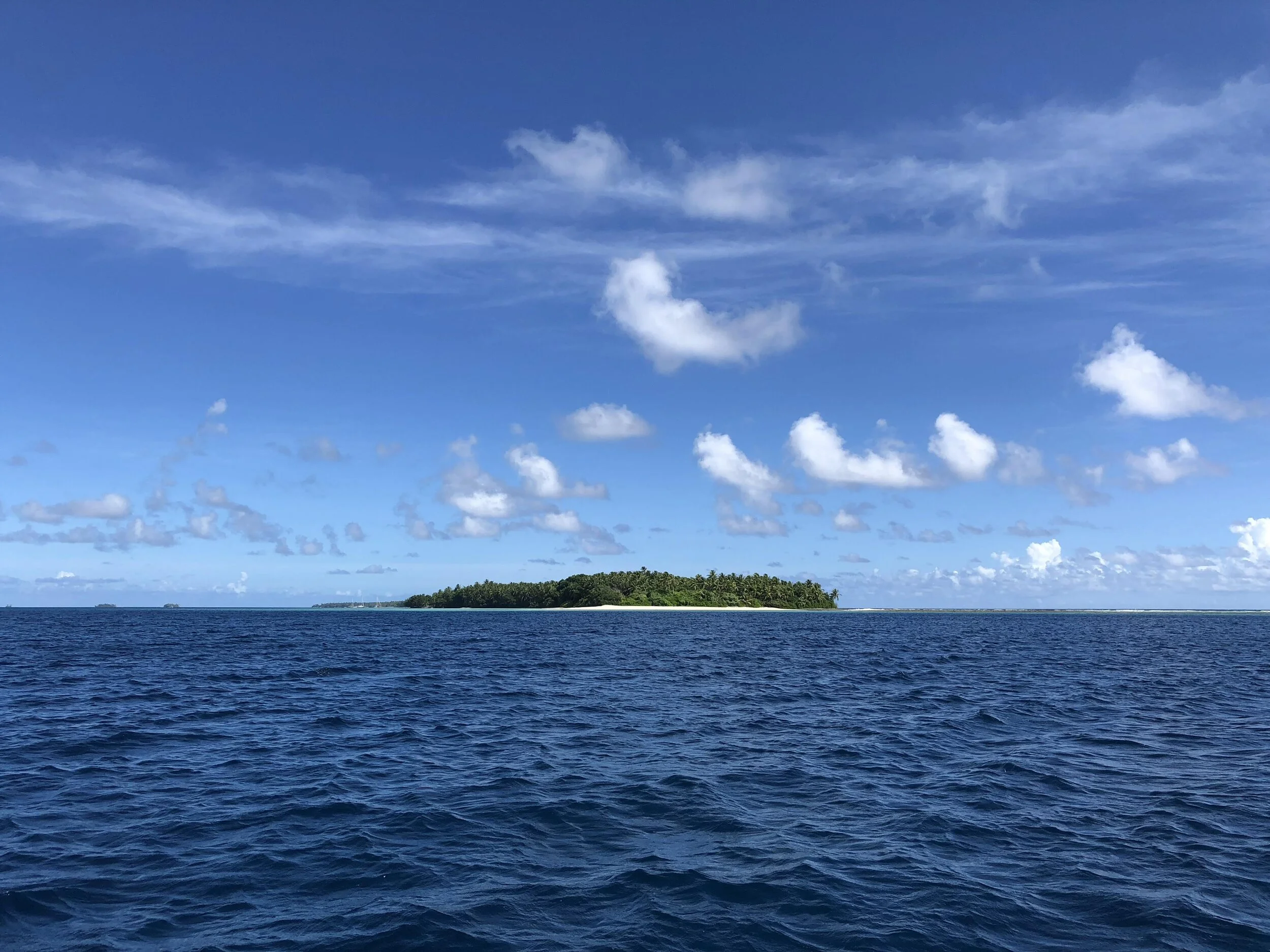On March 1, 1954, the U.S. detonated a 15 Megaton thermonuclear weapon on Bikini Atoll in the Marshall Islands. The Bravo bomb—the largest nuclear weapon ever detonated by the United States—had a destructive yield more than 1,000 times that of the bomb dropped on Nagasaki. The Bravo test caused widespread radioactive fallout throughout the Marshall Islands, resulting in contamination, sickness, and forcible evacuations. March 1 is now Nuclear Victims Remembrance Day in the Marshall Islands, a national holiday that mourns, honors, and remembers those affected by the horrors of nuclear weapons.
The Bravo bomb was just one of 67 nuclear weapons that the United States exploded in the Marshall Islands from 1946 to 1958. The United States selected two inhabited atolls, Bikini and Enewetak as ground zero for the testing program. The peoples of Bikini and Enewetak were forcibly removed “for the good of mankind,” with the promise that the islands would be returned once the testing program concluded. Throughout the islands, Marshallese people were dispossessed of their homelands; exposed to radioactive fallout, resulting in high rates of illness including cancer, thyroid disease, and birth defects; and enrolled in a series of non-consensual medical experiments to study the effects of radiation on the human body.
Today, 63 years after the United States dropped its last bomb in the Marshall Islands, the Marshallese people continue to grapple with long-term health and environmental consequences. Bikini and Rongelap Atolls remain irradiated and their people remain in exile. Enewetak Atoll is home to the Runit Dome, a leaking nuclear waste repository constructed by the U.S. to store the high-level radioactive waste produced during the testing program. Rising sea levels and increasing storms exacerbate this leakage. And despite decades of tireless work by Marshallese advocates, the U.S. has never provided adequate compensation for the harms caused by nuclear testing.
In the face of these challenges, the people of the Marshall Islands have survived and have continued to fight tirelessly for nuclear justice. The theme of Nuclear Victims Remembrance Day this year is “jejjab maake iab” or “we are not alone.” To the Marshallese people, we at AMP say: You are not alone. AMP stands in solidarity with you and your quest for nuclear justice.
Not only today, but every day going forward, we should all listen to survivors, learn about history of nuclear testing in the Marshall Islands. And we should all stand in solidarity in the fight for nuclear justice. Below is a video message of support, as well as resources to learn more about the history of nuclear testing in the Marshall Islands and Marshallese efforts toward nuclear justice.
Learn More:
Darlene Keju, Speech to World Council of Churches, Vancouver (1983)
Interview of Tony de Brum, “We Are Actually Here to Save the World” (2017)
Caroline Ferguson, Marshallese Americans Commemorate 73 Years in Exile, Hyphen Magazine (2019)
Natural History Museum of LA County Talks Podcast: Nuclear Contamination and Climate Change (2020)











